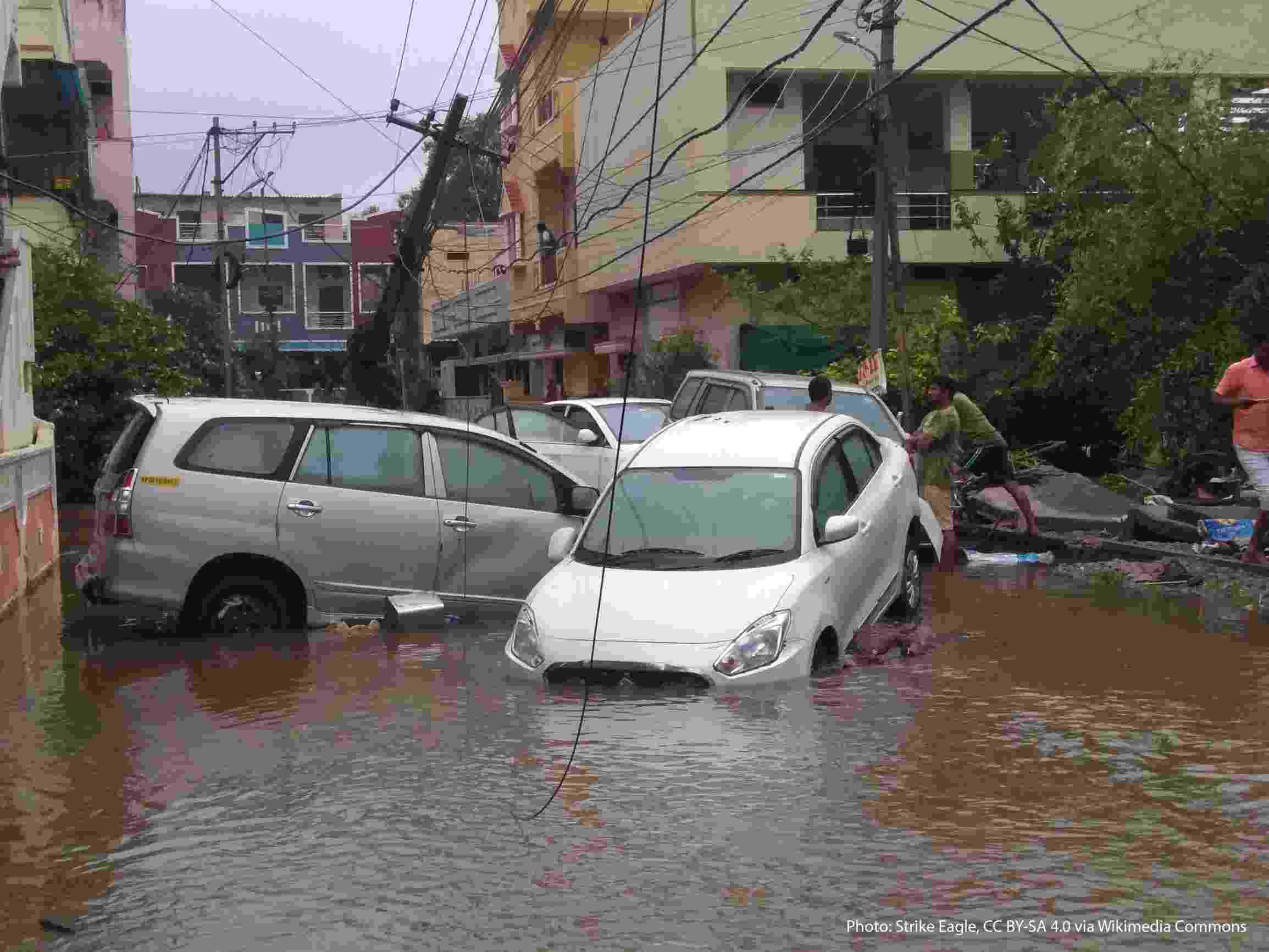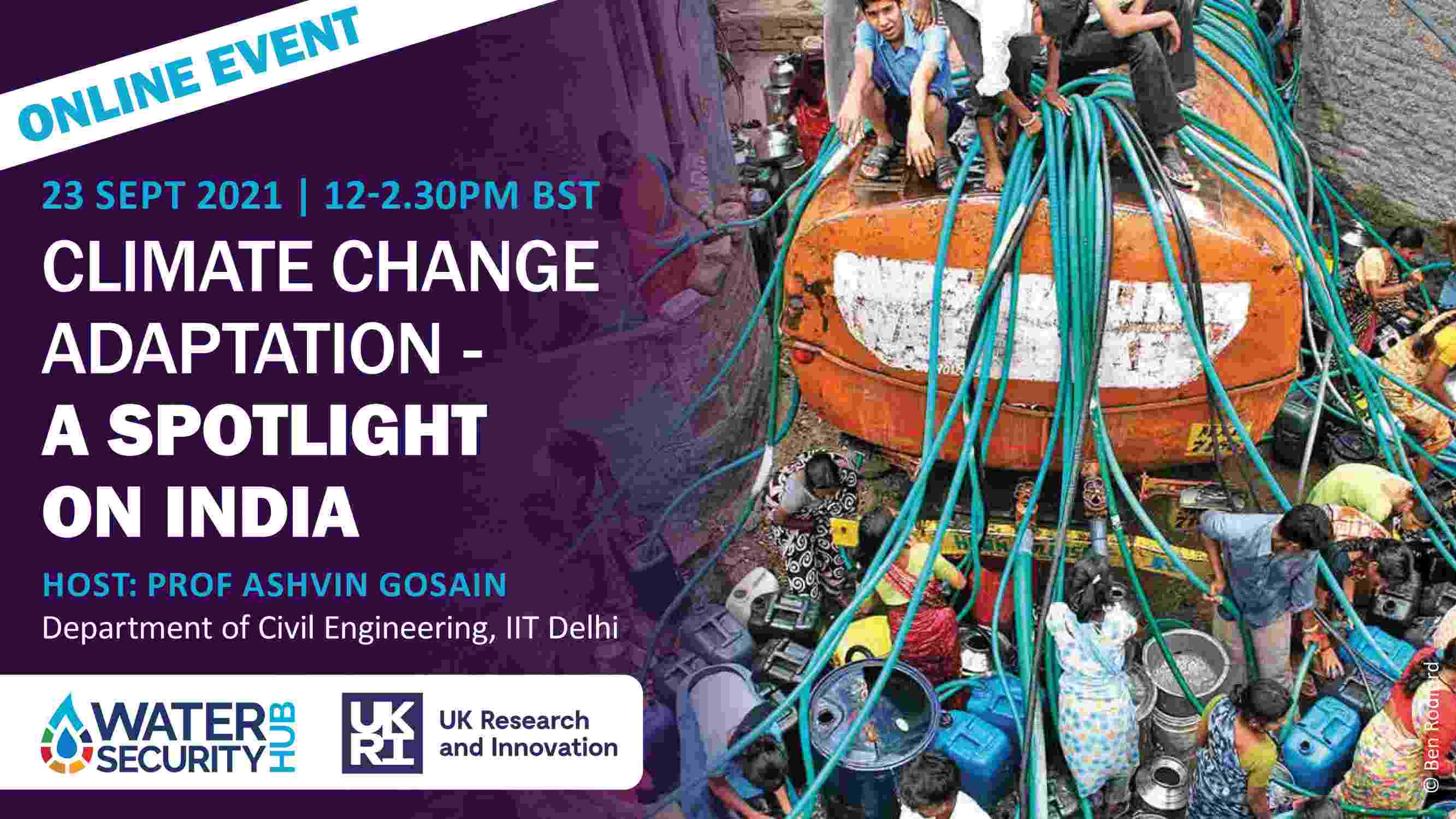Collaboratory update October 2021 | India
An update from our colleagues in India
17 October 2021


Aftermath of the 2020 Hyderabad floods
India has fortunately overcome the second wave of the pandemic. Members of the Hub team are back to working onsite and are returning to field work, conducting surveys, and enjoying holding meetings face-to-face once again.
Over the past few months, collaboratory members have been busy delivering numerous talks and presentations on topics including: urban storm water management and water security in the NCT of Delhi; water values in NCT of Delhi; water quality and health risks in the NCT of Delhi; and Delhi’s water policies and progress towards SDG6. The team have also focused on strengthening their relationships with partners and stakeholders. Virtual meetings have been held with the National Mission for Clean Ganga (NMCG) and the Delhi Jal Board, to discuss the development of a GIS-based framework for decision-making in present status of water supply, sewage generation, and sewage treatment in space and time for NCT of Delhi.
The IIT Delhi team participated in a workshop organised by the Centre for Ganga River Basin Management and Studies at IIT Kanpur, to prepare a framework for the Ganga River Basin Management Plan focusing on the ‘Arth Ganga’ concept. Described as a holistic thinking process, Arth Ganga implies a sustainable holistic model where ecological conservation and economic development coexist within a circular economy. As part of the process, farmers will be encouraged to engage in sustainable agriculture practices. Arth Ganga also explores the creation of water sports and tourism infrastructure and the development of inland waterways to help generate sustainable income streams.
The SPA Delhi team contributed chapters on ‘Water and Drainage’ and ‘Sanitation and Waste Management’ to the Draft Regional Plan 2041 of National Capital Region (NCR), submitted to the National Capital Region Planning Board (NCRPB). Prof Rao has been nominated by the Delhi Development Authority (DDA) as a member of the expert committee to review the Draft Delhi Master Plan 2041. Where previous master plans considered water as a commodity and (according to stakeholder perceptions) prioritised economic and environmental values, the team are working to integrate cultural and social values into the Master Plan 2031 through (for example) Cultural Resource Management Plans.


In Spring 2021, the Hub held the first instalment of a series of webinars examining the nexus of climate change, adaptation, and water security. The second instalment in the series took place in September and was led by our India collaboratory, shining a spotlight on climate change impacts in India. Bringing together leading experts and renowned guest speakers from a variety of backgrounds and institutions, the event was divided into two parts. In the first session, guest speakers delivered a series of presentations on four topics: carbon cycles in India; climate risks in agriculture and food security; climate change impacts on water cycles and water demand; and adaptation measures to reduce biodiversity loss. The second session consisted of a roundtable panel discussion, in which panellists answered key questions on: climate models; gaps between research, policy, and governance; understanding the interactions between sectors and systems; and planning good adaptation measures for the water sector. Watch the webinar recordings and find out more here.



